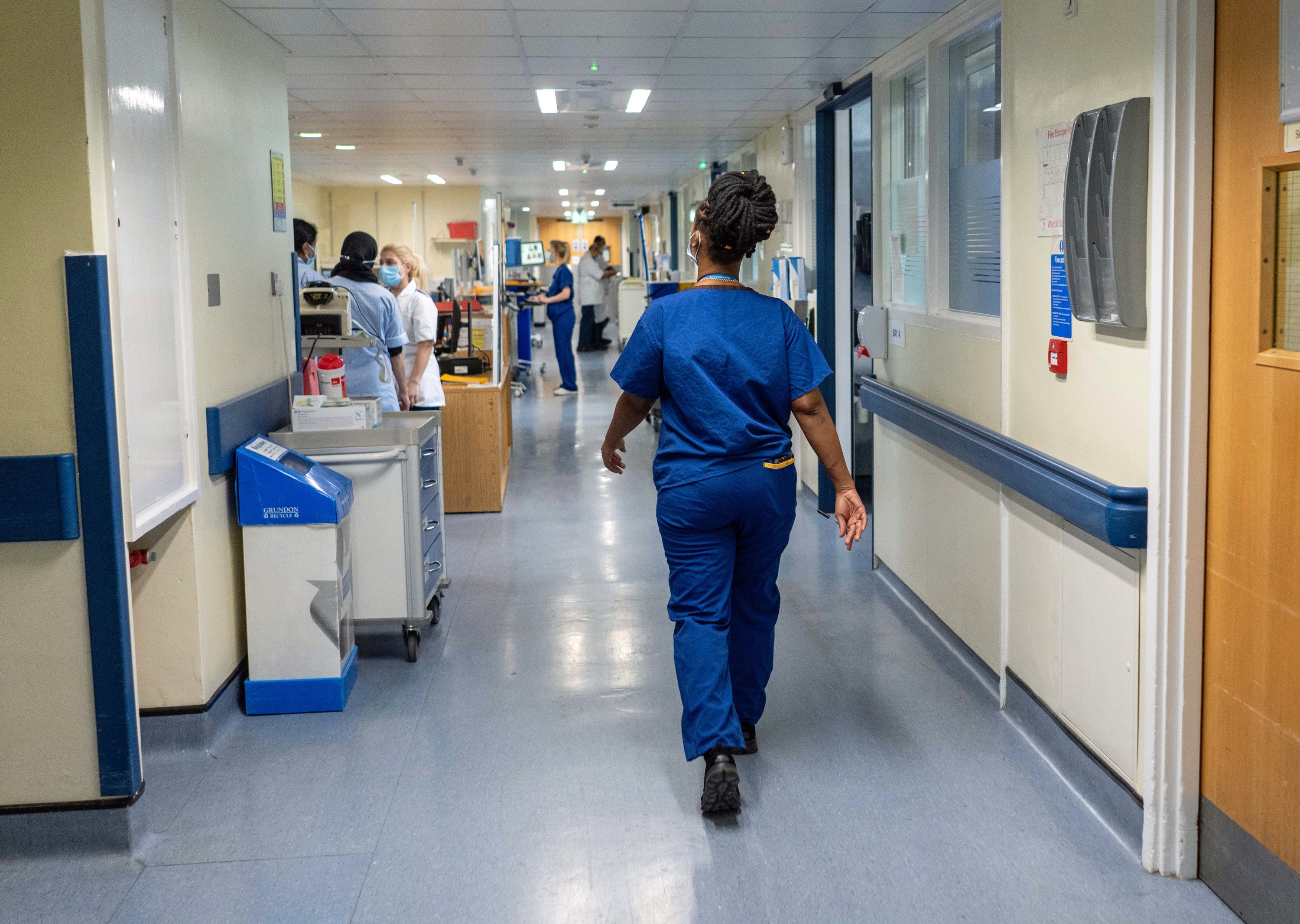Starmer warned NHS reforms will fail over ‘worrying’ trend in staff recruitment
The UK is failing to train up home-grown healthcare staff and relying too much on overseas workers, experts warn

Your support helps us to tell the story
From reproductive rights to climate change to Big Tech, The Independent is on the ground when the story is developing. Whether it's investigating the financials of Elon Musk's pro-Trump PAC or producing our latest documentary, 'The A Word', which shines a light on the American women fighting for reproductive rights, we know how important it is to parse out the facts from the messaging.
At such a critical moment in US history, we need reporters on the ground. Your donation allows us to keep sending journalists to speak to both sides of the story.
The Independent is trusted by Americans across the entire political spectrum. And unlike many other quality news outlets, we choose not to lock Americans out of our reporting and analysis with paywalls. We believe quality journalism should be available to everyone, paid for by those who can afford it.
Your support makes all the difference.Top nurses have warned that planned government reforms for the health service “stand no chance” if widespread problems with recruitment and retaining staff are not fixed.
While new figures show that the number of registered nurses and midwives in the UK is at a record high, experts say that recruitment of nurses is slowing down in an “incredibly worrying” trend.
Chief executive of the Royal College of Nursing (RCN), Professor Nicola Ranger, said that the profession was “witnessing a devastating increase in people leaving within five years of joining”.
She added: “Nurse recruitment is slowing, the numbers of new starters is falling...at a time of widespread vacancies, these trends are incredibly worrying for our NHS and the people that rely on its care.
“Across the health and care services, international recruitment was utilised to plug rota gaps, but we are now watching as thousands of overseas staff choose to go elsewhere.”
She warned this downturn in overseas staff was coming at a time when fewer UK students were signing up to become nurses, saying: “The number of student nurses in the UK dropped considerably again this year, showing worse years seem be ahead.”
New tighter regulation introduced in December 2023, which stopped overseas care workers bringing their family members to the UK, has contributed to a sharp decline in health care visa applications.
There were 50,591 of health and care worker visas granted in the year ending September 2024, 65 per cent fewer than the previous year.
Experts claim the workforce is “increasingly inexperienced”, while facing worrying shortages and still relying heavily on candidates from overseas.
Policymakers have been urged to consider measures such as student loan forgiveness schemes to ensure there are enough home-grown staff.
The latest mid-year report from the Nursing and Midwifery Council (NMC) shows there were a record 841,367 professionals on the register as of the end of September.
The figure is an increase of 14,949 compared to the previous six months and 22 per cent higher than March 2017.
The NMC said growth has been upheld by “two pillars” in the past seven years.

These are a “steady pattern” of domestic recruitment and a “significant rise” in overseas joiners.
The figures show 14,780 UK-educated professionals joined the register between April and September, a fall of 1.8 per cent compared to the previous six months, while 11,569 UK-educated staff left the register, some 1.6 per cent higher than the figure reported in the six months to September 2023.
Meanwhile, the NMC said international recruitment was starting to slow.
Its data shows there were 12,534 internationally educated joiners on the register in the six months to September, which is 16.6 per cent fewer than the same period last year.
Some 2,573 international staff also left the register, an increase of 33 per cent.
Kuljit Dhillon, interim executive director of strategy and insight at the NMC, said: “Nursing and midwifery are among the UK’s most trusted professions, so as we head into another tough winter, we hope there is small comfort in the growth of our register to a record 841,000.
“At the same time, there are notes of caution in our data around international recruitment, which has been a pillar of workforce growth in recent years.
“We’ve seen a fall in internationally educated joiners and an even higher proportional rise in leavers, although it’s important to view leavers’ data through the lens of a growing register.”
Professor Ranger, from the RCN, added: “Across England, we desperately need a loan forgiveness scheme to boost domestic recruitment into the profession. The government’s NHS reforms stand no chance of being delivered without addressing these fundamentals.”
Dr Billy Palmer, senior fellow at think tank Nuffield Trust, welcomed the growth in the register but warned the workforce is facing shortages.
He also described the figures as “a chronic symptom of a domestic clinical education system that is not fit for purpose”.
“The UK’s nursing and midwifery workforce is increasingly inexperienced and facing deeply worrying shortages in important areas, with learning disability nursing numbers still lower than five years ago,” Dr Palmer said.
“Concerningly, the number of nurses and midwives with over 10 years’ experience is falling, and 28 per cent of staff have five years’ experience or less - echoing similar trends seen in the latest registration data for doctors.
“This shift to less experienced staff may affect productivity and put a strain on those who train, mentor and supervise them.”
He added: “We have warned the NHS is failing to attract homegrown nurses, with new domestic joiners having previously fallen by more than 6,000 over two years.
“Now, the heavy reliance on overseas joiners continues, with nearly half of new nursing and midwifery registrants educated outside of the UK.”
Join our commenting forum
Join thought-provoking conversations, follow other Independent readers and see their replies
Comments